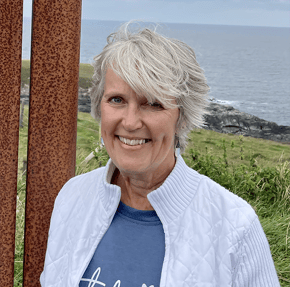"So don’t be indifferent about right and wrong, be indignant. Don’t let anyone convince you that your moral instincts are insecurity. Decide what kind of person you want to be, and hold yourself to it. Decide before the world does." —Freya India
One Gen Z writer suggests a way to navigate the current sea of anxiety in which her generation is swimming: live by strong moral values.
Freya India is a twenty-four-year-old freelance writer from the United Kingdom. Her writing has found its way into the pages of the Spectator, the New Statesman, The Independent, Quillette, and UnHerd. Her work has also been noted by The Guardian, The Atlantic, and the New York Times. As a member of Gen Z, her insightful assessment of the culture is a clarion call to her generation to work on becoming a better person.
Which is not something we hear often. If we feel anxious today we are advised to analyse our past and problems and relationships, rarely our own character. We are asked what would make us happy, never what would make us honourable. We are told to love ourselves, with little care for how we conduct ourselves. We are reminded to find self-respect and self-esteem, forgetting that these things are earned. Self-development is more about ice baths and breathwork than becoming a better person.
She makes a complaint: there is “so much talk” about mental and emotional health but very little about morality or an “overarching sense of good guiding us.” She continues:
The other problem with everyone setting their own personal boundaries is that we are all getting very confused. Heartbreakingly confused. . . . Everyone’s boundaries are entitled to respect and all are equally deserving of respect. Set too many and you’re controlling. Cross theirs and you’re toxic. Everything is up for debate!
What is the result of all this individual boundary setting? India claims that it is isolating individuals from society and each other. And she sees it as the cause of the great anxiety and paralysis of her generation.
Her common sense response? Don’t just draw a boundary; live your values.
But how can you find values to live by? She points out the need for parents to pass on moral values to their children because “when you don’t, the world does it for you. It imposes its own values.” Staying neutral should not be an option, she says, because the world is not neutral. If you put honesty, loyalty, and other virtues first, it limits the sense of endless options.
In philosophical and sociological terms, what Freya is describing is captured by the word “anomie.”
Anomie: The Breakdown of Shared Values
The nineteenth-century French sociologist Emile Durkheim used the term anomie to describe the breakdown of shared norms or values and the alienation and moral confusion that result within a society. He claimed that this breakdown occurs due to rapid shifts in the social, economic, or cultural landscape. In his work, Durkheim was concerned with the problem of reconciling freedom and morality, of the economic needs and interests of individuals with those of society. Durkheim believed that this dissonance and breakdown of moral consensus often resulted in suicide.
According to the Oxford Review website, the effects of anomie on individuals and communities can be quite profound.
On an individual level, it may manifest as feelings of anxiety, disillusionment, and existential crisis. In extreme cases, it can contribute to antisocial behaviour, substance abuse, and mental health issues. At a societal level, Anomie can lead to increased crime rates, social unrest, and a breakdown of social cohesion.
This description seems to match the state of our current culture and the experience described by Freya India:
"And while we’re at it, it’s funny to me that insecurity—you’re just insecure!—has become the chief insult in the modern world, rather than a fact of it. Yes I’m insecure! . . . Seems to me an entirely natural response to living in a morally ambiguous world, where norms and customs and commitments constantly change."
Without Societal Norms, How Can We Find Shared Values?
One way that Freya answers her own call to live by a strong set of shared moral values is to recognize the value of the virtues. Long understood as the means to achieve excellence and happiness, virtues can provide the basis for re-creating a shared culture based on the desire to become a better person. As Dr. Kevin Vost, PsyD, states in his description of virtues:
"Virtues allow us to become excellent - more fully and perfectly human - by disposing us to perform good acts, to perfect ourselves, and to give the best of ourselves. When we possess the virtues, it becomes easier and more natural and enjoyable for us to do the right things. We're able to maximize our human powers. Virtues make us and our actions good."
In the next post, we will take a look at the relationship of virtue with happiness and how we can develop positive character strengths to help us flourish even in an ambiguous world.

